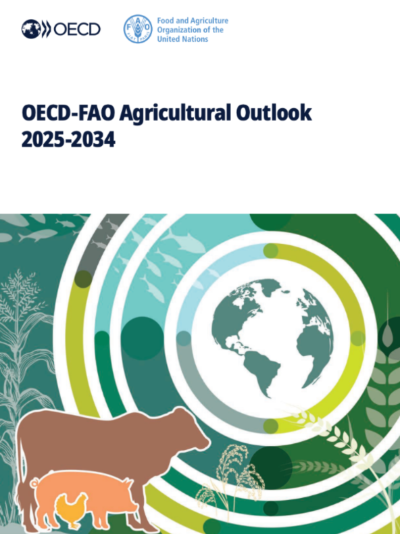
The OECD–FAO Agricultural Outlook 2025-2034 provides a comprehensive assessment of the ten-year prospects for agricultural commodity and fish markets at national, regional, and global levels. Jointly produced by the OECD and FAO, in collaboration with their Members and international commodity organisations, the Outlook serves as a forward-looking reference to support evidence-based policy planning. This 21st edition examines the evolving landscape of global agriculture in the face of economic, political and environmental challenges.
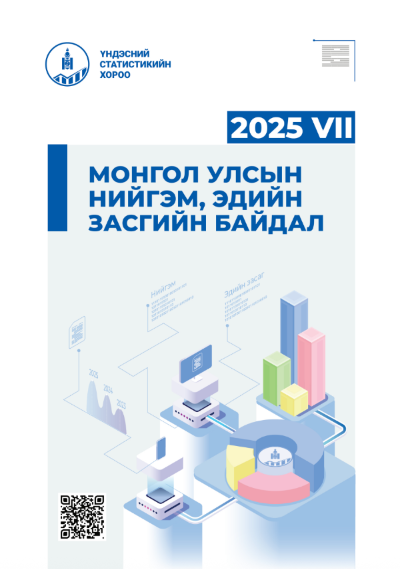
The report on the socioeconomic situation of Mongolia, published by the National Statistics Office, includes data as of July 2025. This encompasses population, labor, social insurance, social welfare, health insurance, tourism, money, loans, securities market, budget, foreign trade condition index, housing price index, agriculture, industry, information and communication, transport, hospitality industry price indices, livestock, crop farming, industrial, and transport sector data, as well as information from the business registration database.
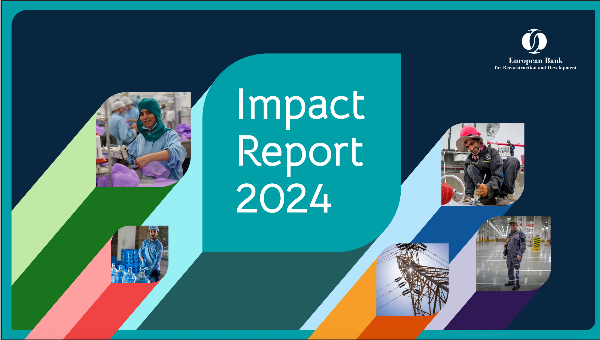
The Impact Report explores the results of EBRD investments and activities in the economies where it operates.
From promoting the private sector and supporting Ukraine to empowering the green transition, boosting human capital, closing digital divides and deepening financial ecosystems, EBRD’s work is enabling mutually reinforcing systemic changes that are creating long-term benefits for millions of people.
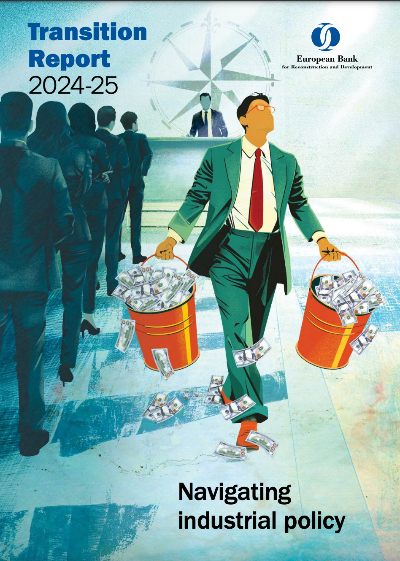
Navigating industrial policy
The Transition Report 2024-25 focuses on industrial policies in the EBRD regions and beyond. Such policies have seen a resurgence, seeking to address market failures such as environmental degradation.
However, their track record is mixed. Their growing popularity is shaped primarily by domestic political economy considerations and rising geopolitical tensions. While industrial policies are typically employed by higher-income economies, they are also now used more frequently in economies with less administrative and fiscal capacity to implement them.
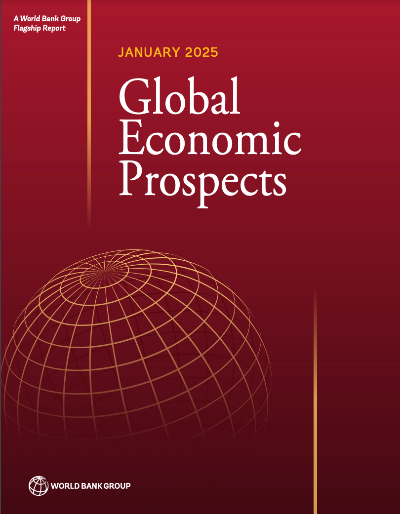
Global growth is expected to hold steady at 2.7 percent in 2025-26. However, the global economy appears to be settling at a low growth rate that will be insufficient to foster sustained economic development. Emerging market and developing economies are set to enter the second quarter of the 21st century with per capita incomes on a trajectory that implies feeble catch-up toward those of advanced economies.
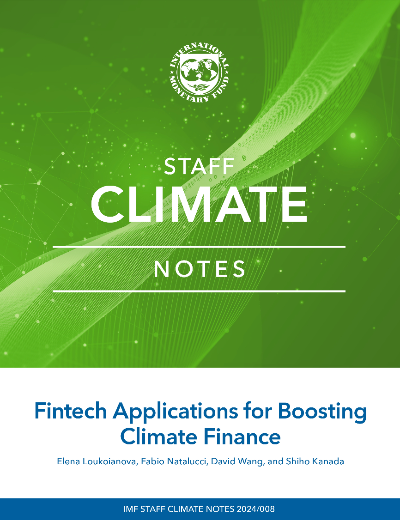
Climate fintech—the intersection between climate change, financial services, and digital technologies—is playing an important role in attracting more investment into climate finance by leveraging innovative technologies, thereby addressing some financing barriers. While recognizing that technology alone can only be a partial solution, the note outlines how fintech can help address financing challenges for climate investments.
Read more … Fintech Applications for Boosting Climate Finance
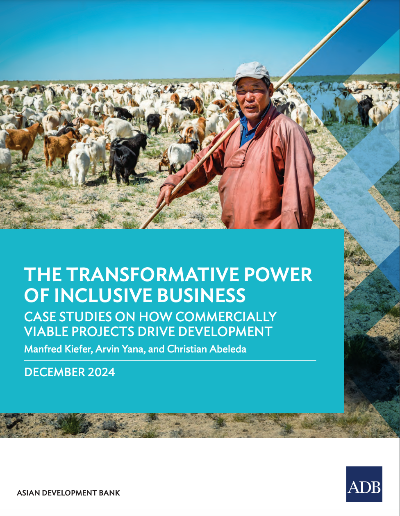
This publication explores how inclusive business initiatives successfully integrate low-income segments into commercial markets. It highlights concepts, models, and strategies that drive economic growth and development, proving that business can thrive while creating positive social impact.
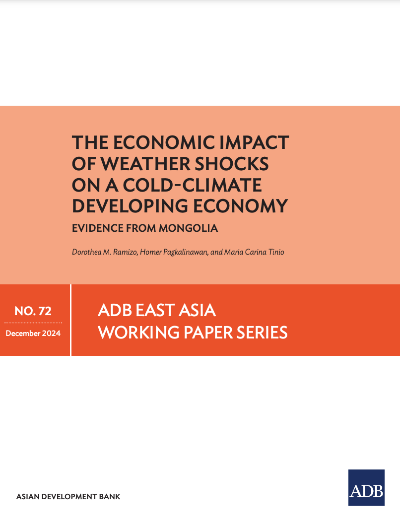
This paper examines the different economic impacts of weather shocks in Mongolia across sectors and provinces. It highlights the importance of tailored policy responses that consider local climatic conditions and economic structures.
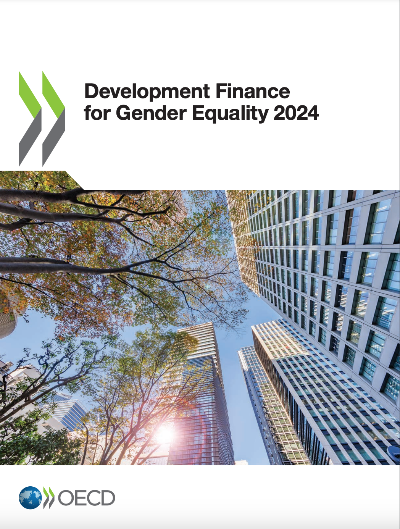
This report offers an unprecedented overview of international development finance, aid and beyond, aimed at advancing gender equality. It analyses the data collected by the OECD to explore trends, uncover details, identify possible drivers, and suggest areas where finance can be better used to support gender equality. A special section presents opportunities to increase the gender equality focus of investments in selected thematic areas.
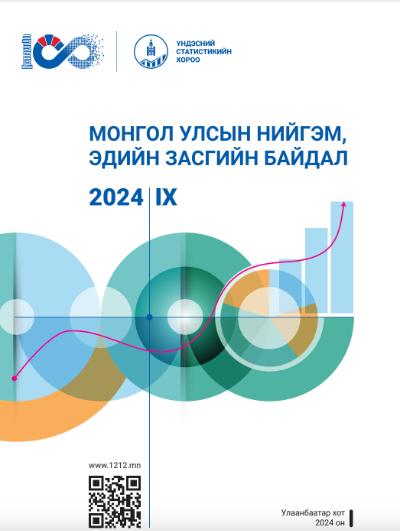
The report on the socioeconomic situation of Mongolia, published by the National Statistics Office, includes data as of September 2024. This encompasses population, labor, social insurance, social welfare, health insurance, tourism, money, loans, securities market, budget, foreign trade condition index, housing price index, agriculture, industry, information and communication, transport, hospitality industry price indices, livestock, crop farming, industrial, and transport sector data, as well as information from the business registration database."
Read more … Socioeconomic Situation of Mongolia, September 2024
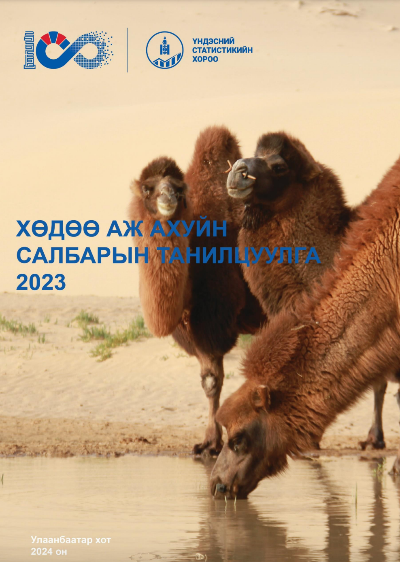
"The agricultural sector plays a crucial role in Mongolia’s economy. Its operations are more dependent on natural and weather conditions than other factors, and the products produced mainly supply the population's food needs and provide raw materials for the processing industry.
This overview by the National Statistics Office summarizes not only the key results of livestock counting but also the 2023 outlook for the livestock and crop sectors. It includes data on livestock sector products, production volumes of key raw materials, exports and imports of these products, information about herder households, herders, veterinary services, livestock pens, wells, water points, and the main indicators of the crop farming sector such as cultivated area, harvested crops, and crop yield per hectare."
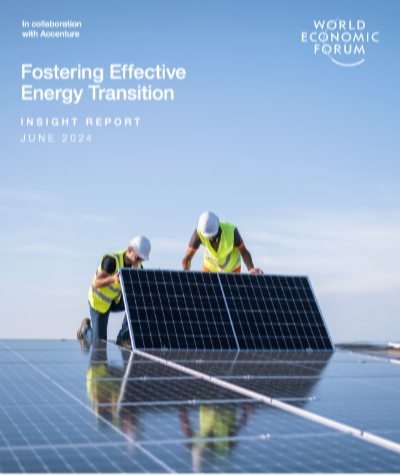
"The energy transition is progressing but has lost momentum in the face of increasing global uncertainty. The Energy Transition Index (ETI), which benchmarks 120 countries on their current energy system performance and on the readiness of their enabling environment, finds that while there has been notable progress in energy efficiency and a marked increase in the adoption of clean energy sources, energy transition momentum has been held back by setbacks in energy equity, driven by rising energy prices in recent years. Energy security also continues to be tested by geopolitical risks."


